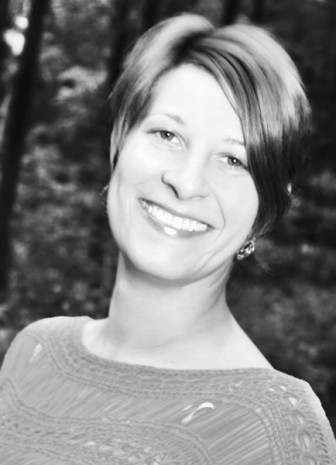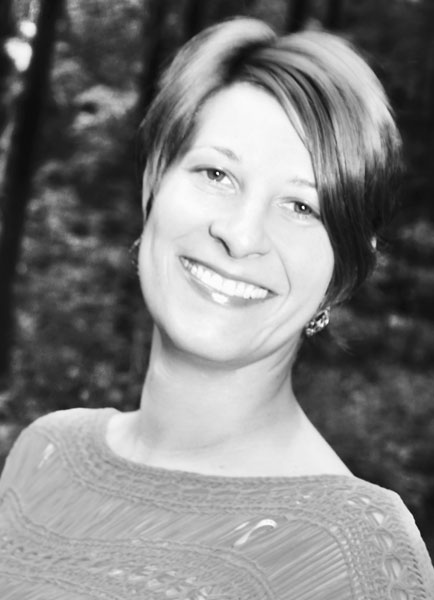 Oprah Winfrey’s book, “What I Know For Sure,” comes to my mind often when I look at what life has presented me with and what I face each day. I often ask myself what do I know for sure about girls involved in our juvenile justice system.
Oprah Winfrey’s book, “What I Know For Sure,” comes to my mind often when I look at what life has presented me with and what I face each day. I often ask myself what do I know for sure about girls involved in our juvenile justice system.
What I know is that our girls today are scared and often lack the guidance of a caring adult. It is my experience that many girls who come into contact with the juvenile justice system have experienced some form of trauma, mental health diagnosis, substance abuse and the absence of a caring adult in their lives.
Today’s generation has a culture of allowing social media to guide our youth’s footsteps. They lack the opportunity to interact with a caring neighbor, teacher, church youth group or simply a nonjudgmental person. We have forgotten how to love our young ladies, and they are left to turn to social media such as Instagram, Facebook and SnapChat for approval.
 Our young ladies are exposing themselves in a dangerous and vulnerable way just for a “like,” “view” or “thumbs up.” We have allowed social media to provide temporary relief for their pain and feeling of abandonment way too often. We have fewer and fewer positive venues for our young ladies, so the desire to reach out to their peers for acceptance will repeat whether they get a positive or negative response.
Our young ladies are exposing themselves in a dangerous and vulnerable way just for a “like,” “view” or “thumbs up.” We have allowed social media to provide temporary relief for their pain and feeling of abandonment way too often. We have fewer and fewer positive venues for our young ladies, so the desire to reach out to their peers for acceptance will repeat whether they get a positive or negative response.
Lead4Life, Inc. in Maryland provides community-based gender-specific programming for girls who are involved with the juvenile justice system or are at risk of being placed out of their homes due to negative behaviors displayed in the community, school and home. Time and time again these girls start the program not having a voice, feeling insufficient, assuming no one will understand what they are going through and, most disturbing, feeling completely alone. Throughout the program, we are able to see these girls blossom.
Lead4Life uses a strength-based, Positive Youth Development (PYD) and restorative practice approach. Besides providing a safe program structure, topics that address daily life practices and a special dinner, we provide the group with caring adults. Through the strength-based model, we make sure that we acknowledge every positive decision, action or response they make. It can be as simple as arriving to school on time, helping a stranger or providing support to a peer.
[Related: Report: Juvenile Justice System Must Substantively Revamp Treatment of Girls]
The PYD model empowers the young ladies to lead the groups. They come up with the topics, community service projects and build their own community support system with peers. The restorative practice approach allows for caring adults to process the decisions the young ladies are making and the impact it is having on them personally, their community and anyone who may have been victimized by their behaviors. It empowers the young ladies to accept responsibility for their decisions and make a commitment to change what they do not like through a supportive environment. Through the three approaches, the young ladies feel empowered, their voices are heard, sharing their story is safe and they are building positive relationships with peers and caring adults.
Many say we, the facilitators of the group, have poor boundaries because we embrace the girls with a hug and tell them they are loved. If we focused on boundaries, we could not get to the core of the issues these young ladies struggle with daily. The challenging issues they face have included sexual abuse, domestic violence, a mental health diagnosis they do not agree with, failing school and, more common than not, substance abuse.
There is an emphasis on each and every strength each girl possesses, brings to the group and to their community. We celebrate each girl and all the assets they contribute. We celebrate birthdays. Many of us take our birthday for granted and think negative thoughts about how we are getting old. Many of these young ladies do not get recognized for their birthday with a card or cake so we make sure that happens in our groups.
We also allow participants who successfully complete the program to apply to become a youth leader for the program. They gain positive workforce development skills, positive communication skills, a stipend and continued support system.
Lead4Life, Inc.’s purpose is to create a culture of love and support for our participants. We are given the gift of learning from these young ladies and their struggle to find a purpose. We are addressing the school-to-prison pipeline in a very nontraditional manner but one that is extremely effective and provides a meaningful experience for most participants.
Lead4Life has been providing gender-specific programming since 2009. Since its conception we have serviced approximately 54 to 62 young ladies per year. Of those participants (annual average), 78 percent are African American, 12 percent Hispanic, 6 percent other and 4 percent Caucasian. One year after participants’ successful completion of the program, Lead4Life tracks how many youth have recidivated in the criminal justice system. On average, 74 to 78 percent of youth did not recidivate (commit a new crime), which speaks volumes to the impact we are having.
Jennifer Gauthier is the CEO of Lead4Life, Inc., an emerging nonprofit serving youth and adults in the criminal justice system. She brings both life experience and professional training to her work of empowering young people and young adults in the criminal justice system.
More related articles:
Girls in Justice System Often Traumatized Victims of Abuse
Sexually Exploited Girls in Need of Services, Not Handcuffs
California Mentorship Program Offers Comfort to Sexually Exploited Young Women
